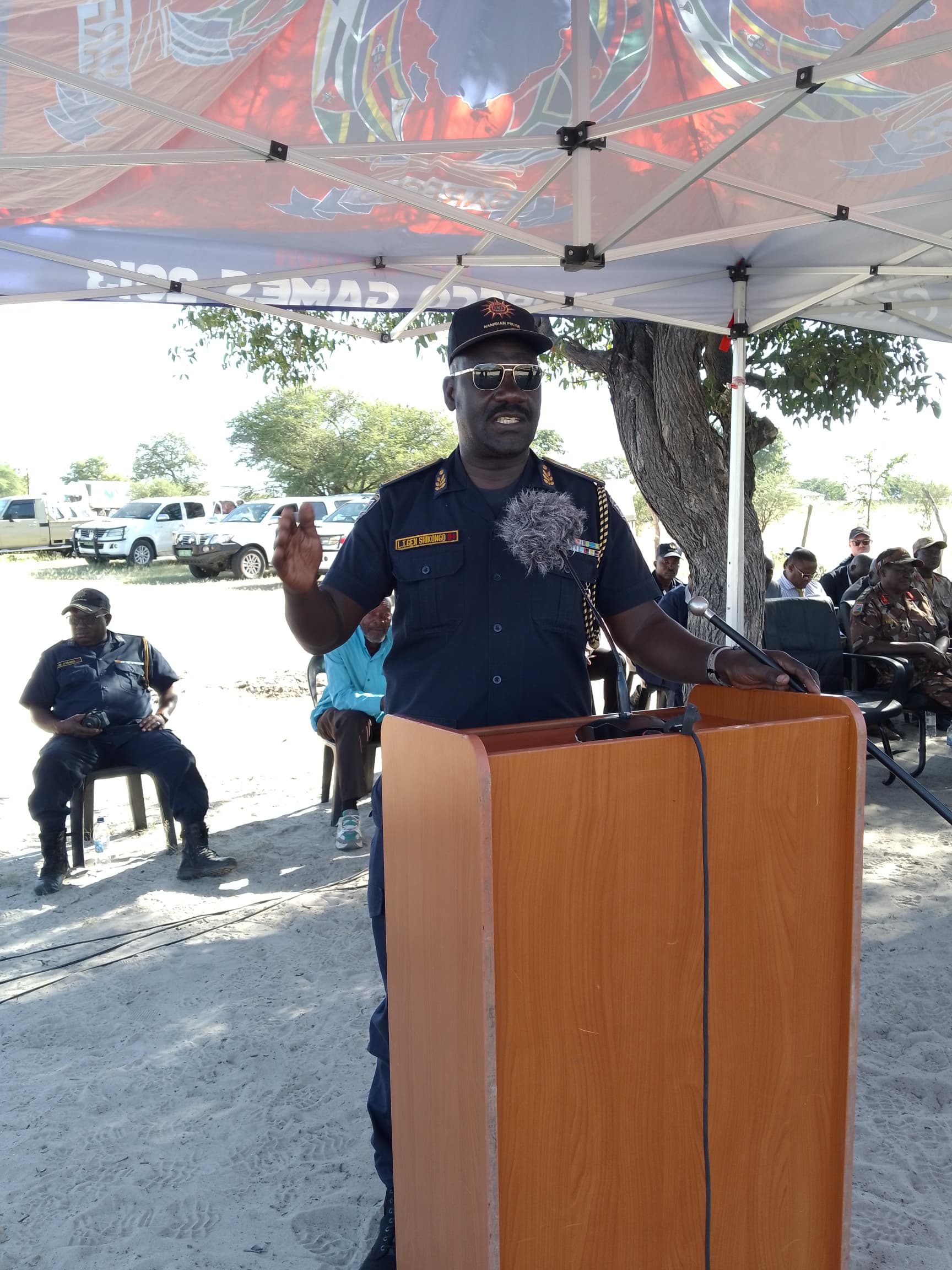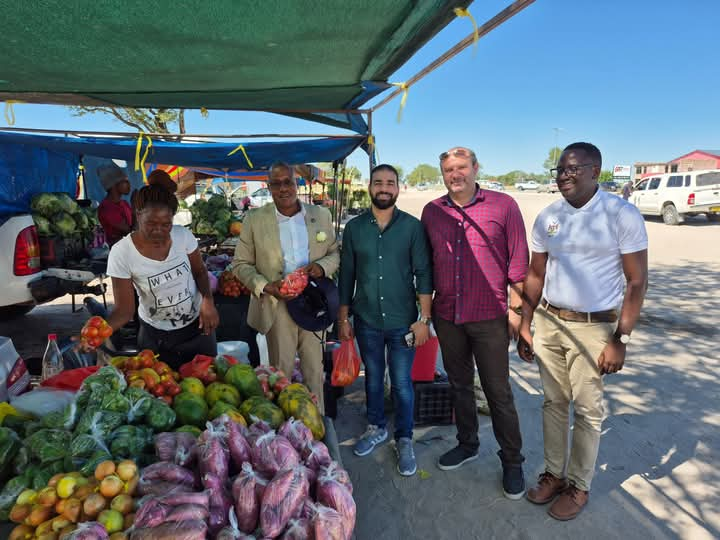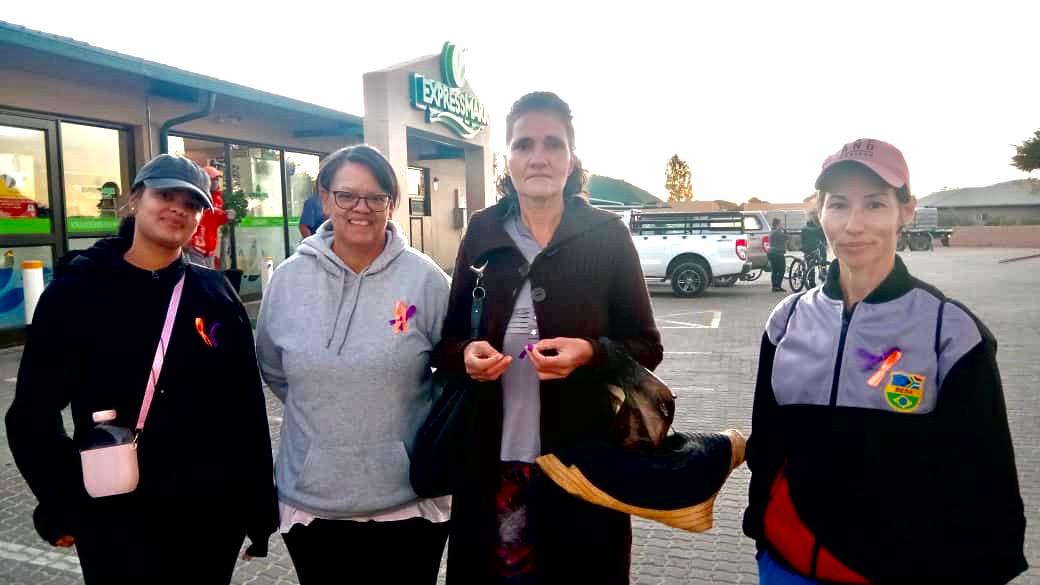A CHOLERA outbreak has been declared in the flooded northern district of Engela.
One person has already died as a result of the water-borne disease. By yesterday afternoon, four of 72 suspected cases of the disease reported there in the last week had been confirmed to be cholera.The announcement was made by Health Minister Richard Kamwi at a press conference in Windhoek.A third wave of floodwater arrived from Angola last Tuesday, damaging many roads and bridges in the Ohangwena and Oshana regions.The cholera outbreak appears to have resulted from overflowing sewerage oxidation ponds into this floodwater, which is reportedly used by many in the surrounding villages for human consumption.Kamwi said yesterday that the destruction of bridges at Endola and Engela had left about 12 clinics cut off from any supplies, while health outreach services in the northern regions have also been suspended as a result of damaged roads.The destruction of the Engela bridge, for one, has led to its district hospital being cut off from the rest of the country.Members of the Namibia Defence Force were sent to the area on Sunday to see what they could do, after the Ohangwena Regional Council this weekend pleaded with Government to put up a temporary prefabricated bridge to help get food to people.”The Ministry is working around the clock to provide the necessary resources to contain and prevent further spread of waterborne diseases and other illnesses,” Kamwi said yesterday.A special Emergency Treatment Facility has been put up in Ohangwena town, where all suspected cholera cases from the area would be sent, Kamwi said.He said the Emergency Management Unit in the Prime Minister’s Office, along with the Regional Emergency Management Unit – made up of Government and its development partners – were co-ordinating to keep the flood situation under control.The Minister urged people living in the affected areas to stay on alert for any symptoms of cholera, and to immediately report such cases to the nearest health facility.Especially important to treat, he said, was dehydration caused by the illness.Cholera is an acute illness accompanied by profuse watery diarrhoea, and is caused by the Vibrio Cholerae bacteria.It is transmitted by drinking or eating contaminated water or food.Symptoms of cholera 1. Passing a lot of loose watery stools, which have the appearance of “rice water”.2. Stools have a fishy smell.3. Severe dehydration and weakness may occur very rapidly.Prevent transmission of cholera 1. Drink piped, bottled, boiled or otherwise purified water at all times.2. Wash hands before preparing food and after using the toilet.3. Avoid washing hands from the same bowl as others at funerals, weddings or other gatherings.4. Wash all fruit and vegetables thoroughly before eating and avoid eating food that is not well cooked.5. Avoid using the bush as a toilet and ensure that human faeces is buried or properly disposed of.Source: Ministry of Health and Social ServicesBy yesterday afternoon, four of 72 suspected cases of the disease reported there in the last week had been confirmed to be cholera.The announcement was made by Health Minister Richard Kamwi at a press conference in Windhoek.A third wave of floodwater arrived from Angola last Tuesday, damaging many roads and bridges in the Ohangwena and Oshana regions.The cholera outbreak appears to have resulted from overflowing sewerage oxidation ponds into this floodwater, which is reportedly used by many in the surrounding villages for human consumption.Kamwi said yesterday that the destruction of bridges at Endola and Engela had left about 12 clinics cut off from any supplies, while health outreach services in the northern regions have also been suspended as a result of damaged roads.The destruction of the Engela bridge, for one, has led to its district hospital being cut off from the rest of the country.Members of the Namibia Defence Force were sent to the area on Sunday to see what they could do, after the Ohangwena Regional Council this weekend pleaded with Government to put up a temporary prefabricated bridge to help get food to people.”The Ministry is working around the clock to provide the necessary resources to contain and prevent further spread of waterborne diseases and other illnesses,” Kamwi said yesterday.A special Emergency Treatment Facility has been put up in Ohangwena town, where all suspected cholera cases from the area would be sent, Kamwi said.He said the Emergency Management Unit in the Prime Minister’s Office, along with the Regional Emergency Management Unit – made up of Government and its development partners – were co-ordinating to keep the flood situation under control.The Minister urged people living in the affected areas to stay on alert for any symptoms of cholera, and to immediately report such cases to the nearest health facility.Especially important to treat, he said, was dehydration caused by the illness.Cholera is an acute illness accompanied by profuse watery diarrhoea, and is caused by the Vibrio Cholerae bacteria. It is transmitted by drinking or eating contaminated water or food.Symptoms of cholera 1. Passing a lot of loose watery stools, which have the appearance of “rice water”. 2. Stools have a fishy smell. 3. Severe dehydration and weakness may occur very rapidly.Prevent transmission of cholera 1. Drink piped, bottled, boiled or otherwise purified water at all times. 2. Wash hands before preparing food and after using the toilet. 3. Avoid washing hands from the same bowl as others at funerals, weddings or other gatherings. 4. Wash all fruit and vegetables thoroughly before eating and avoid eating food that is not well cooked. 5. Avoid using the bush as a toilet and ensure that human faeces is buried or properly disposed of.Source: Ministry of Health and Social Services
Stay informed with The Namibian – your source for credible journalism. Get in-depth reporting and opinions for
only N$85 a month. Invest in journalism, invest in democracy –
Subscribe Now!










